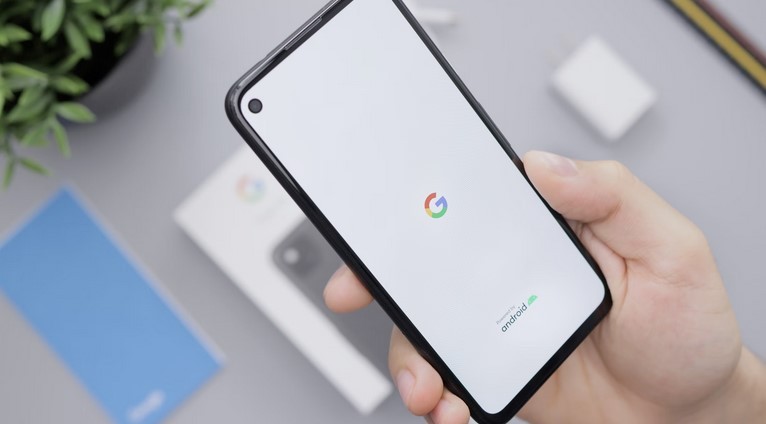现在智能手机承载的功用越来越多,自然用户所需的存储空间也越来越大。但关于使用中低端手机的用户而言,存储空间绰绰有余,他们时常需求为了安装某些新使用而卸载现在手机里现已安装的使用,然后释放手机空间。
Now smartphones carry more and more functions, and the storage space required by organic users is also increasing. But for users who use low- and mid-range phones, there is more than enough storage space, and they often need to uninstall the uses that are now installed in the phone in order to install some new uses, and then free up the phone space.
Google gave Android a few years ago the ability to uninstall an uncommon use that frees up space by prompting users to uninstall a long-unused use when the phone is low. However, this function also has a drawback, that is, for the use of the system without an account, uninstalling and using it will cause the data to be lost (some users only temporarily uninstall, and then reinstall it back).
Thankfully, Google has recently developed a processing plan that is expected to deal with the problems faced by users. Under the new processing scheme, when the user needs more mobile phone space, the Android system can remove some components of the user program (no need to completely uninstall the user program, only partial uninstall) and save the user's core data at the same time, and the user can recover at any time. This feature is called app archiving by Google, which reclaims about 60% of the usage program storage space.
This functional requirement developer automatic adaptation, although it will bring more work to the developer to a certain extent, but after adaptation, it will also reduce the probability of complete uninstallation of the user, improve the activity of use and even the payment rate. Developers don't need to worry too much, because Google does not mandate the use of programs to support this function, and if you do not want to adapt, you can choose to ignore this function.
If you use a program to support this function, the user should be able to activate the use of the archiving function in some way, but at this stage Google does not specify the method of activating this function in the Android developer blog (one guess is that when the user uninstalls the user's program, a pop-up window will appear asking if you want to archive it to free up storage space).
The new usage archiving feature will be available to developers using App Bundles as part of Bundletool 1.10 (now the latest version is 1.8.x). Usage programs built with Android Gradle Plugin 7.3 will include a new archive APK. According to the current development plan, this feature will not be launched later this year, so this function is expected to come with Android 13.
Using archiving seems like a fairly useful feature, especially with regard to phones with very little storage space, especially entry-level Android phones sold in relatively less thriving areas. As we all know, the major domestic Internet companies are relatively slow to adapt to the new features of the Android system, will they actively adapt to this important feature?

Google 在几年前就为 Android 带来了卸载不常用使用的功用,该功用能够在手机容量不足时,提示用户卸载很久没有使用过的使用以释放手机空间。可是这个功用也有一个弊端,就是关于没有账号系统的使用来说,卸载使用后就会导致数据丢掉(有些用户仅仅暂时卸载,后续还会重新安装回来)。
值得庆幸的是,日前谷歌研究出了一个处理方案,有望处理用户面对的这个问题。在新的处理方案下,当用户需求更多手机空间时,Android 系统能够将使用程序的部分组件移除(无需彻底卸载使用程序,仅部分卸载)并同时保存用户的核心数据,用户能够随时康复原样。这个功用被谷歌 称为使用归档(app archiving),可回收大约 60% 的使用程序存储空间。
这个功用需求开发者自动进行适配,虽然在必定程度上会给开发者带来更多的工作量,但适配后也会降低用户彻底卸载的概率,提高使用的活跃度甚至是付费率。开发者也无需过度忧虑,因为 Google 并没有强制要求使用程序支撑这一功用,不愿适配的话能够挑选无视这个功用。
如果使用程序支撑该功用,到时用户应该能够经过某种方法激活使用归档功用,但现阶段 Google 在 Android 开发者博客中并没有详细说明激活这个功用的方法(一种猜想是,当用户卸载使用程序时会出现一个弹窗,会问询你是否想把它归档来释放存储空间)。
新的使用归档功用将作为 Bundletool 1.10(现在最新版本是 1.8.x)版本的一部分提供给使用 App Bundles 的开发者。使用 Android Gradle Plugin 7.3 构建的使用程序将包括新的归档 APK。依照现在的开发方案,这项功用在今年晚些时候才会推出,因此这个功用有望跟着 Android 13 一同到来。
使用归档看起来是一个相当有用的功用,特别是关于存储空间十分小的手机,尤其是在相对没那么兴旺的区域所售卖的入门级 Android 手机。众所周知,国内各大互联网企业对 Android 系统新特性的适配速度相对缓慢,针对这个重要特性他们会活跃适配吗?
